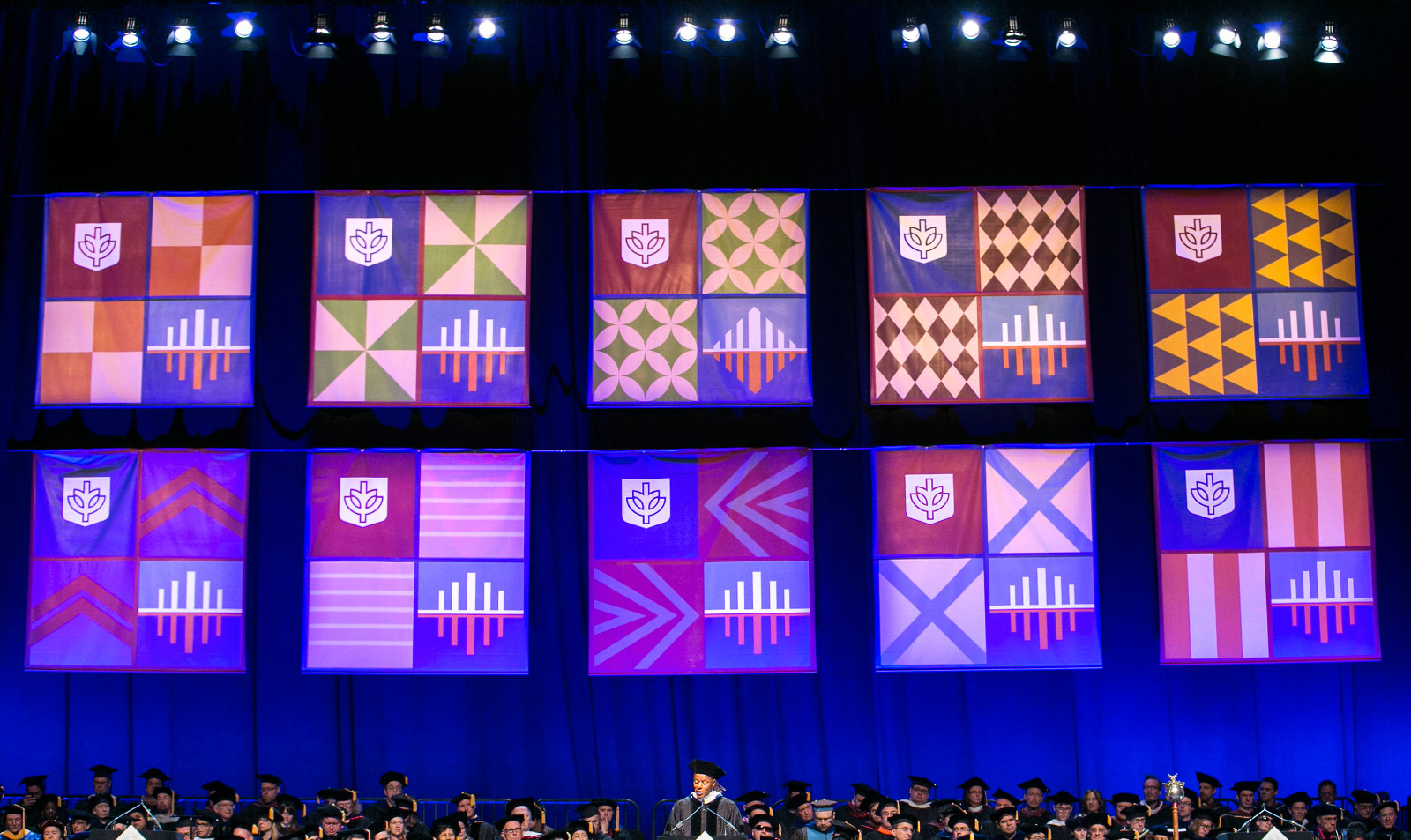
DePaul University takes its name from Saint Vincent de Paul, a French priest who lived in the 17th century. The "Vincentians" are a Roman Catholic religious community founded by St. Vincent who established the university in 1898 and endowed it with a distinctive spirit: to foster a deep respect for the God-given dignity of all persons, especially the materially, culturally and spiritually deprived, and to instill in educated persons a dedication to the service of others and the betterment of our society and our world.
The members of the DePaul University community cherish our distinctive mission and values and make them our own inside and outside of the classroom. We are proud to pass on this heritage to successive generations of our students.
Universities have celebrated the accomplishments of their graduates with commencement ceremonies for more than 800 years, and DePaul strives to imbue its academic commencements with our own distinctive values.
The DePaul commencement traditions are based on a personalistic commitment to assist each of our very diverse students to fulfill their hopes and dreams in the promise of higher education through the attainment of a college degree. Though many universities of DePaul's size do not conduct commencements because of the required size and scope of such ceremonies, DePaul has gone to great lengths to ensure that opportunity for its graduates.
DePaul graduates between 5,000 and 6,000 students each year, and approximately 80% of those students participate in seven separate commencement ceremonies during May and June.
More than 400 graduates and co-celebrants participate in the baccalaureate mass each June, held at St. Vincent de Paul Church in Lincoln Park.
It is our hope that DePaul's commencement ceremonies serve as a moment of pride and hope for all participants — graduates, their families and friends, and those who may be inspired to pursue learning experiences of their own.